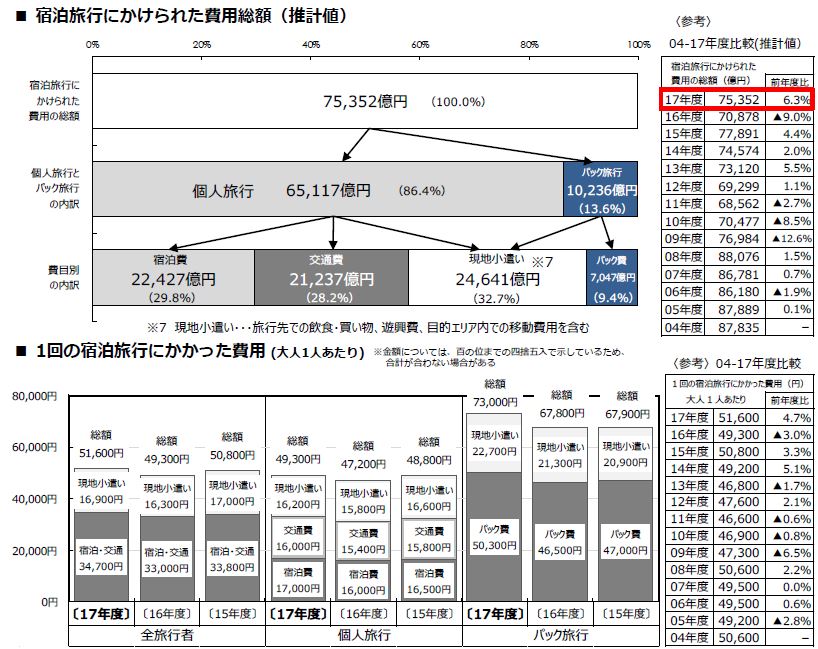
Jalan.net overnight trip survey 2018, announced by Recruit Lifestyle, shows that the domestic overnight trip rate in FY2017 was 55.6% in Japan, improving from the lowest 54.8% ever last year. The average overnight trips were 2.78 a year, and the average nights were 1.76. The total number of overnight travelers was up 1.4% to 145.6 million, and the total number of guest nights up 1.3% to 256.5 million.
Overnight trips increased in all age segments except 50 to 79 years old men. The rate of the age segment from 20 to 34 years old was particularly 54.8%, 3 higher points than 51.7% a year ago.
Travel expenses totaled 7,535 billion JPY (+6.3%), which comprised 6,512 billion JPY for FIT and 1,024 billion JPY for package tour travelers.
Travel expenses a trip a person were 51,600 JPY on average, 49,300 JPY for FIT and 73,000 JPY for a package tour traveler. FIT spent 21,000 JPY more than a year ago, and 1,000 JPY more for lodging. A package tour traveler used 1,400 JPY more than a year ago for local spending. The ratio of FIT to package tour travelers was 90.3% to 9.7%.
The table below shows expenses on overnight trip:

The survey on travel companions finds that the highest ratio was found in married couples with 25.7%, followed by traveling alone with 17.2%. The ratio of traveling with friends was down to 12.7%, 3.2 lower points than a decade ago, and also the ratio of traveling in a group with club members or colleagues down to 2.9%.
In terms of family travel, the ratio of traveling with elementary school or younger children declined to 11.1%, while the ratio of traveling with junior high school or older children was up to 4.5%. Also, the ratio of traveling with parents rose to 4.5%.
The most popular destination for overnight trip was Tokyo (154.1 million travelers), followed by Hokkaido (106.6 million travelers) and Osaka (7.75 million travelers). The highest growth rate was found in Okinawa with 20.3%, followed by Nara with 19.7% and Fukushima with 12.2%.




